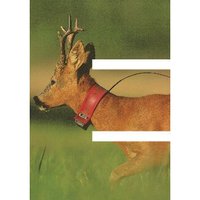
Davide M Dominoni
@dmdominoni
Senior Lecturer in Urban Ecology. All things cities, animals, biological rhythms, biodiversity. How can we build better, greener, healthier cities?
ID: 583673433
http://www.davidedominoni.com 18-05-2012 08:14:44
3,3K Tweet
1,1K Followers
1,1K Following

Wanted Assist Teaching Fellow (0.8 FTE for 6m, start ASAP) to help cover Ecology and Quant Skills Autumn-term teaching on our MSc Core Course' The lectures exist, but need updating. If you have a relevant PhD, some experience, are interested and available, contact us Centre for Environmental Policy, Imperial

First PhD paper from Rachel Rose Reid! Her meta-analysis challenges the common concept that urbanisation is bad for avian health. It is much more complex, and depends on the health metric, life stage and level of urbanisation. royalsocietypublishing.org/doi/10.1098/rs…






⭐️JOB ALERT⭐️ We are looking for a migration ecologist to strengthen our #birdmigration tracking team Vogelwarte_Science Apply by 20 Sep my.jobalino.ch/de/jobpreview/…




Why are non-native animals so successful in urban systems? What is the role of urbanisation in the introduction and establishment of non-native animal species? Excited to share my first first-authored literature review with Davide M Dominoni in J Urban Ecology! academic.oup.com/jue/article/10…



JOB 📢: Assistant Professor in Ecology, Evolution or Behavioural Ecology Durham BioSciences Durham University. Deadline 31 Oct 2024 More info: durham.taleo.net/careersection/… CEG Durham Durham BEER centre BES careers SCB #HiringNow EcologyJobs EcologyJobs ASAB


Excited to see this work be published! Our study attempted to understand why urban blue tits produce smaller clutches than their non-urban counterparts. Is this a result of environmental constraints? Or is it an adaptative response to the urban habitat? besjournals.onlinelibrary.wiley.com/doi/10.1111/13…

Interested in what we found out? Make sure to give our paper a read! A huge thank you goes out to everyone who helped with this, including Pablo Capilla-Lasheras, Claire Branston, Eugenio Carlon, Davide M Dominoni and to SCENE and UofG SBOHVM for facilitating/supporting this work.

New paper out from our Glasgow urban gradient, led by Mark Pitt and Pablo Capilla-Lasheras. We sought to understand why urban blue tits lay smaller clutches than the rural counterparts. See Mark's thread for details! Glasgow Urban Ecology Group Claire Branston UofG SBOHVM







